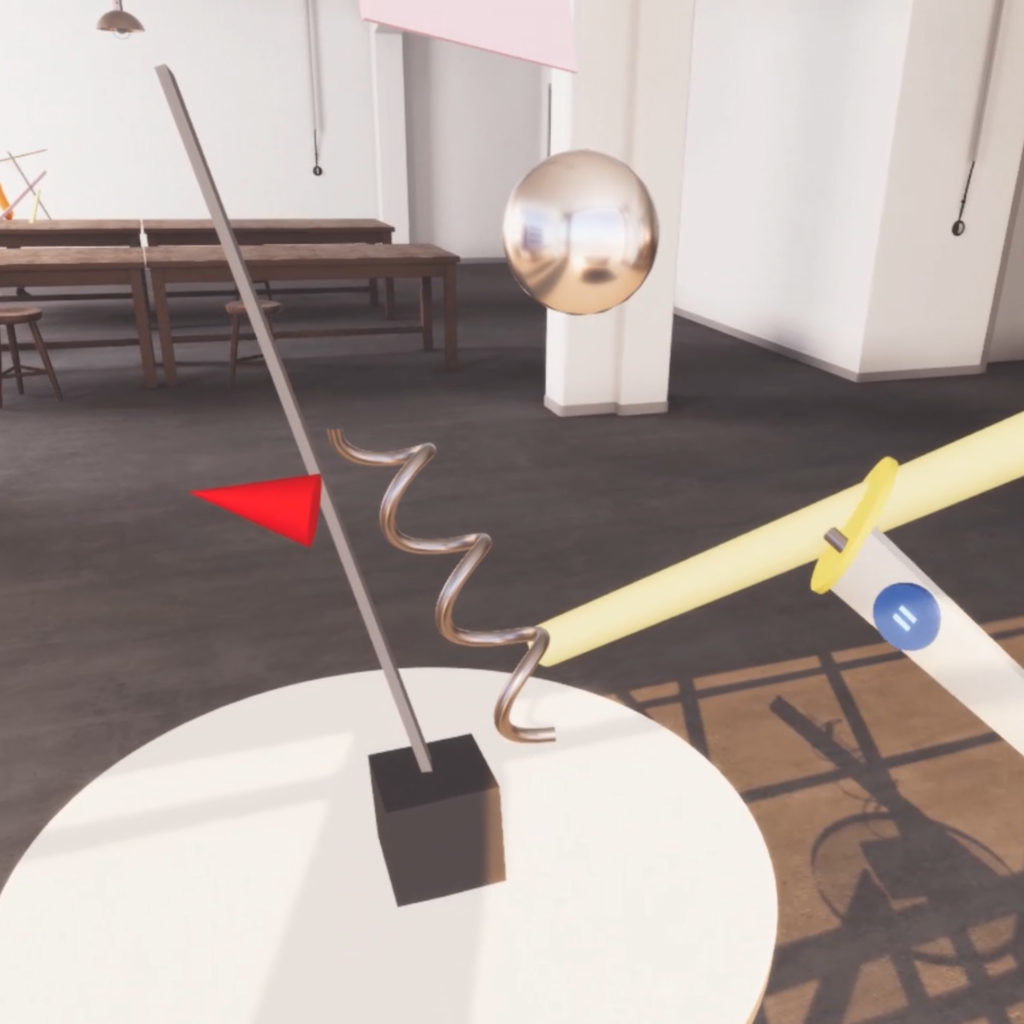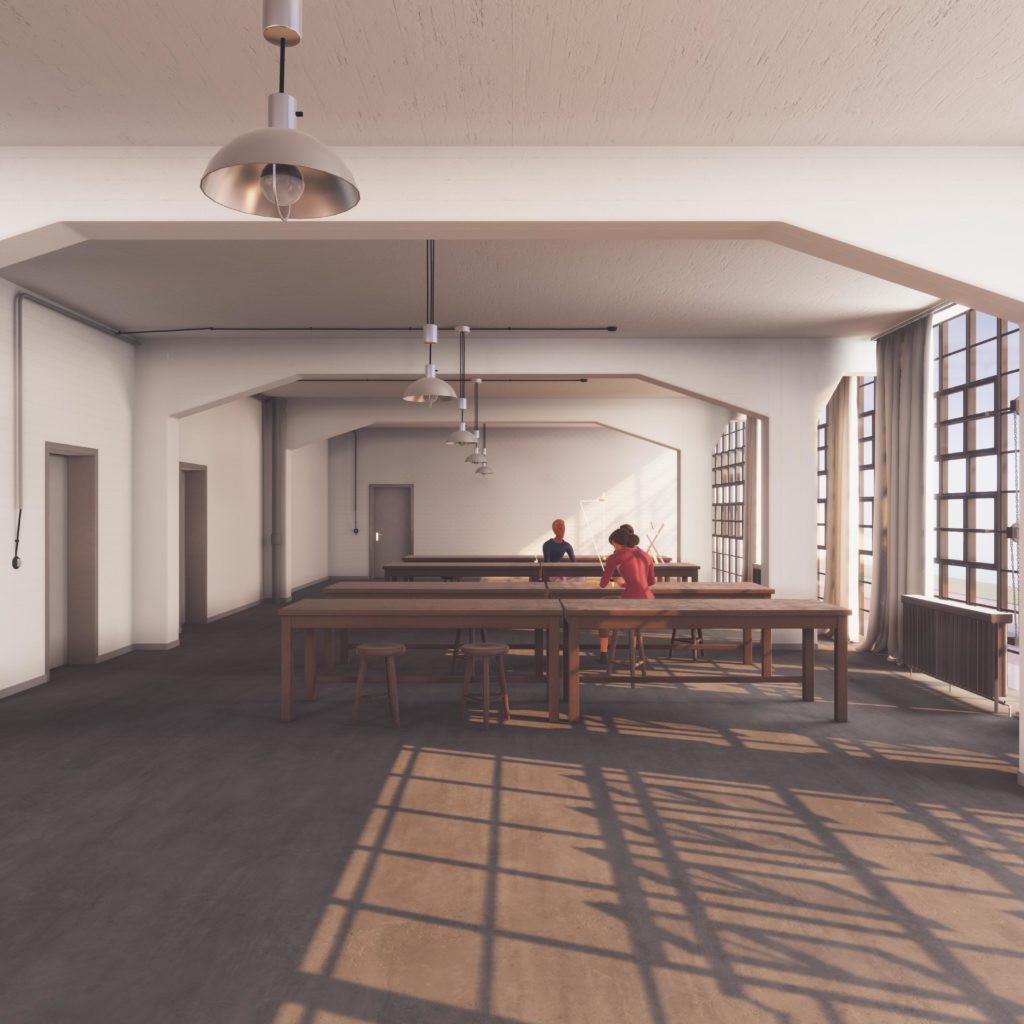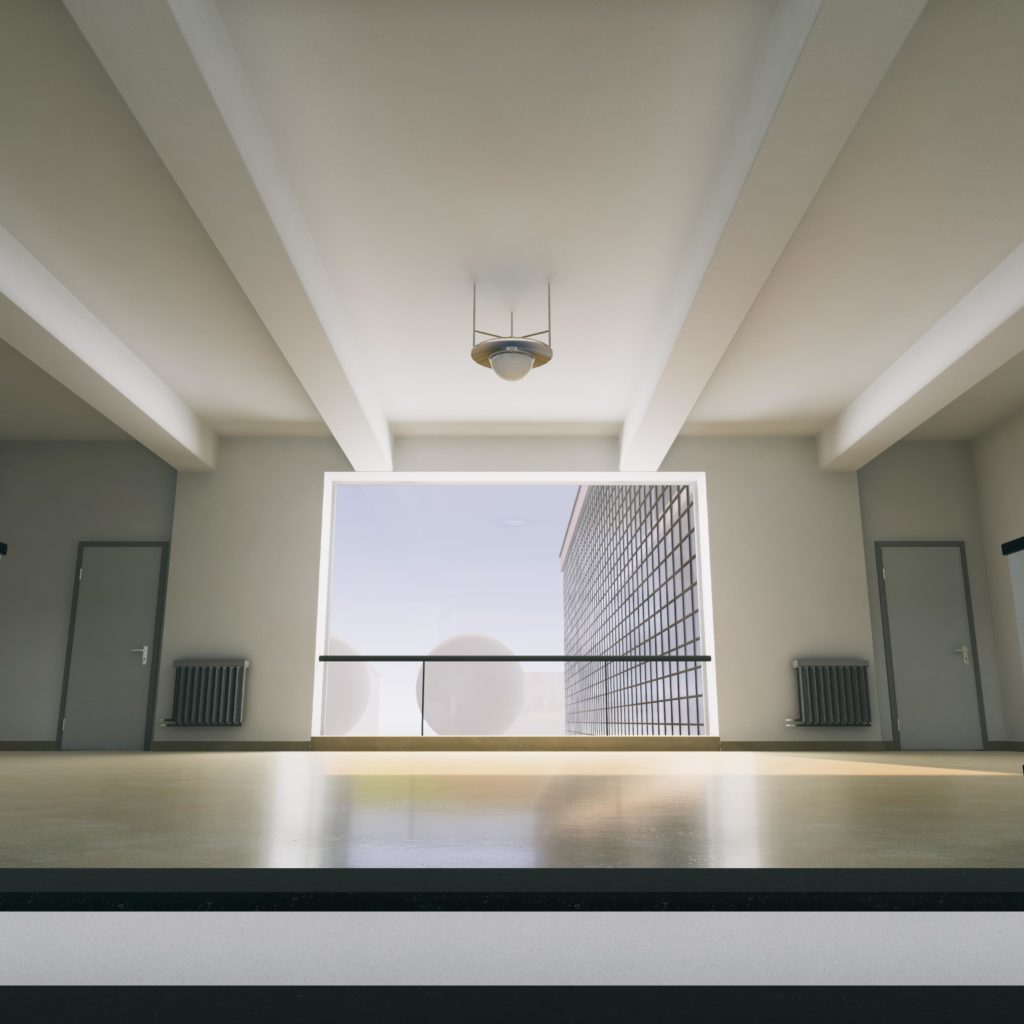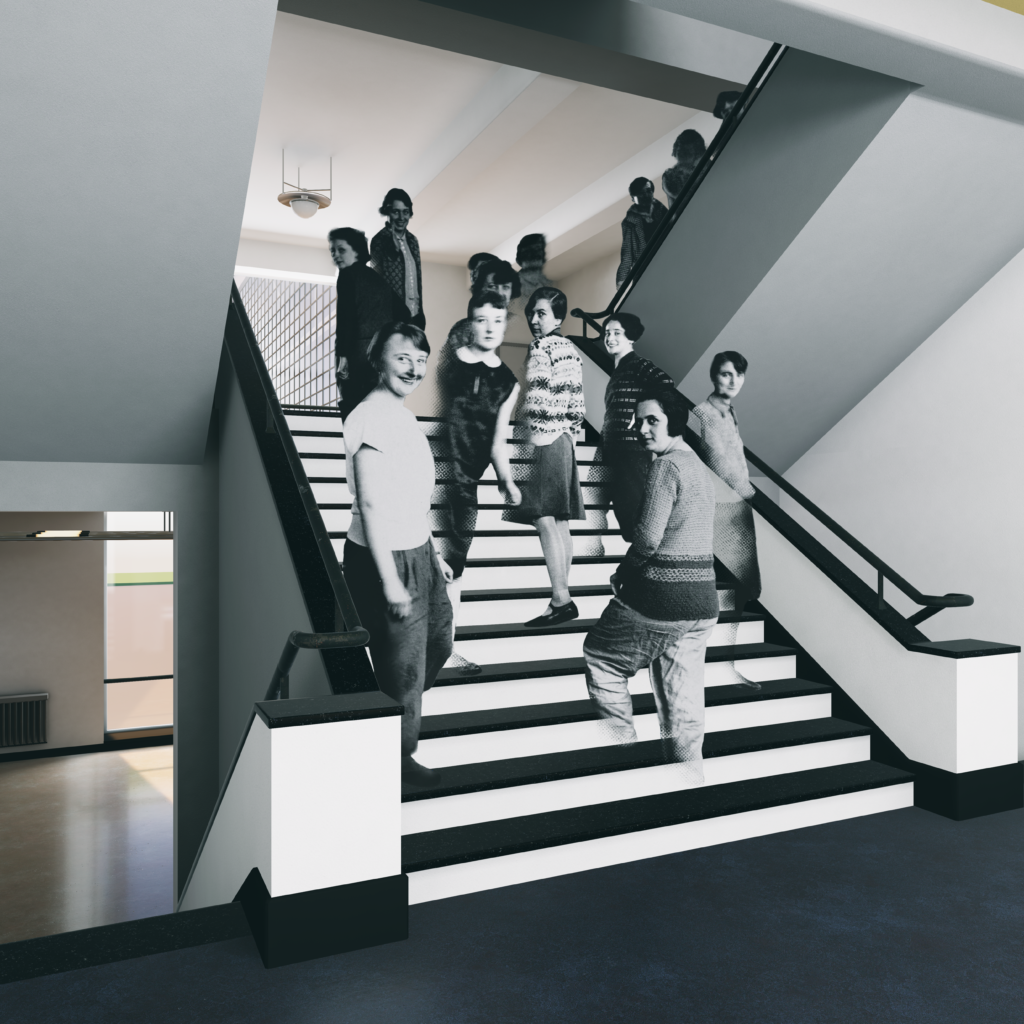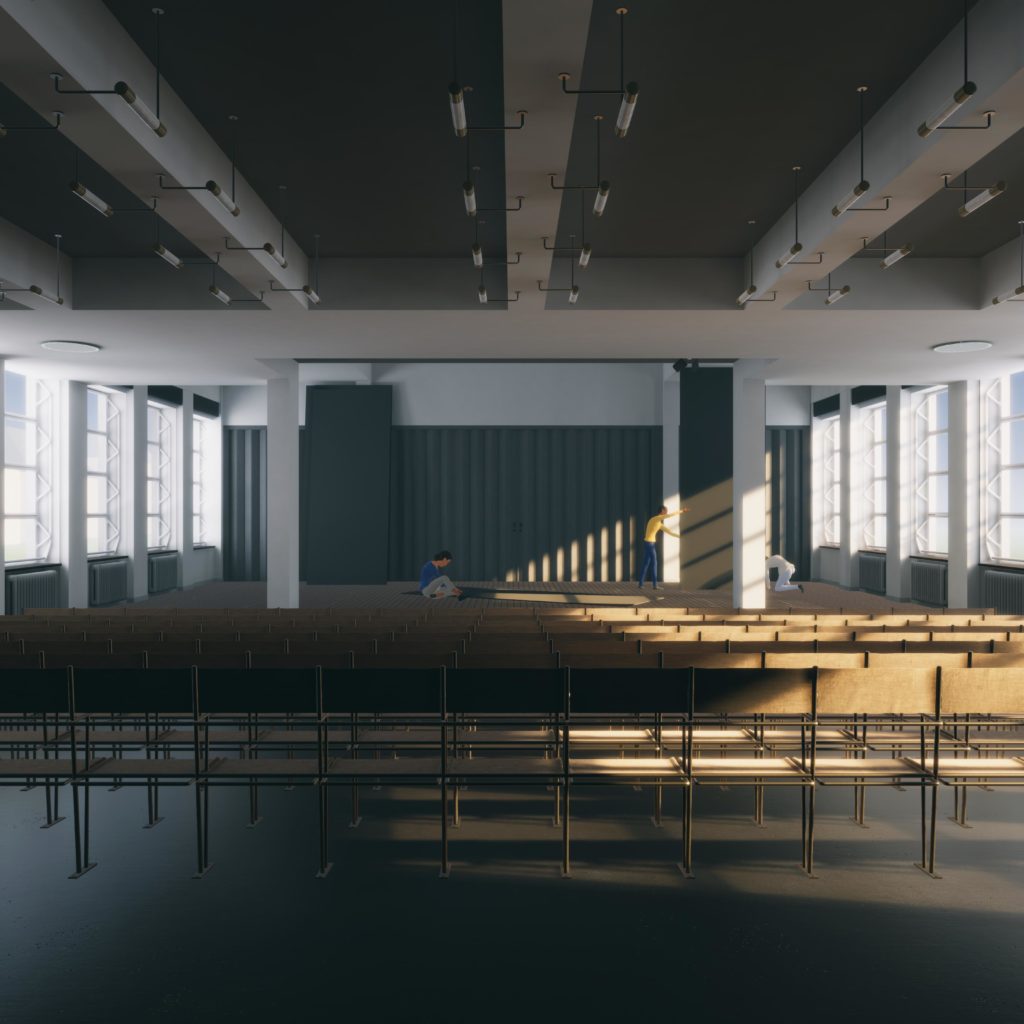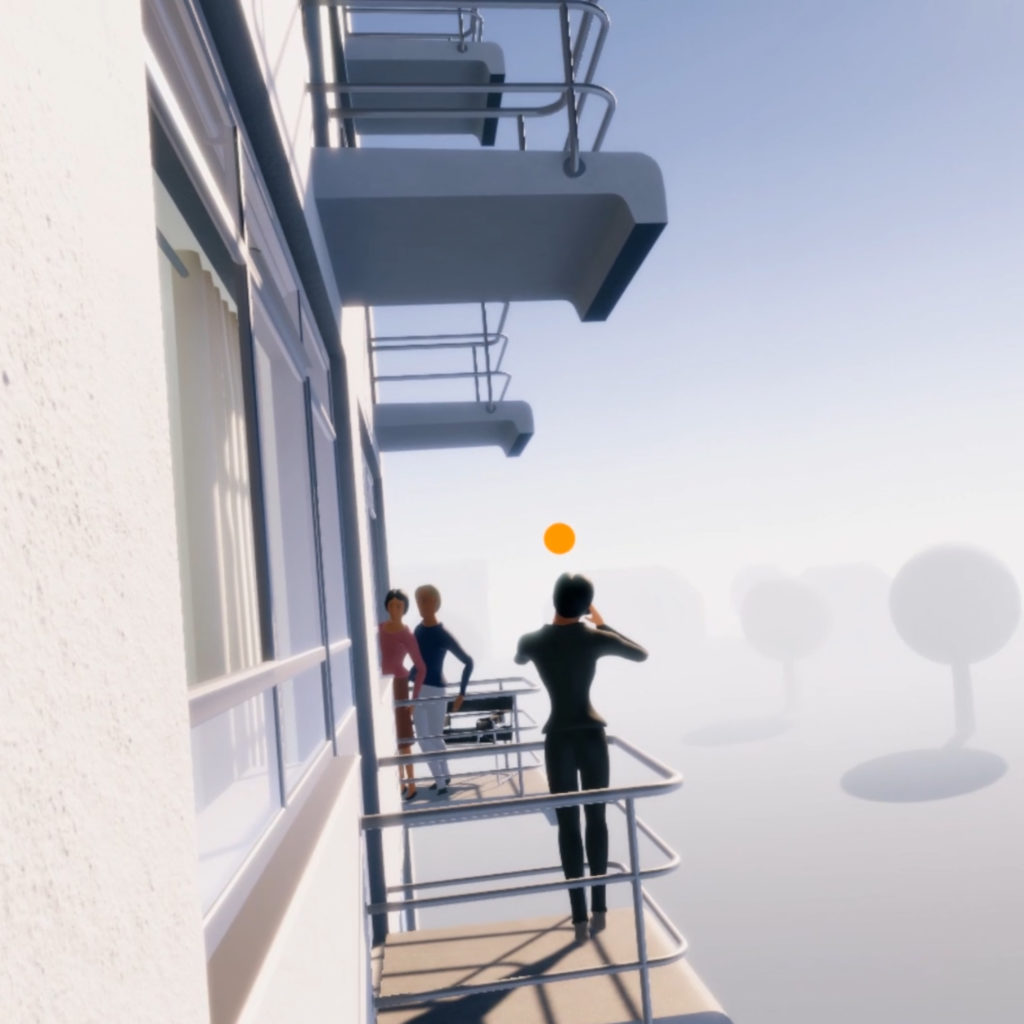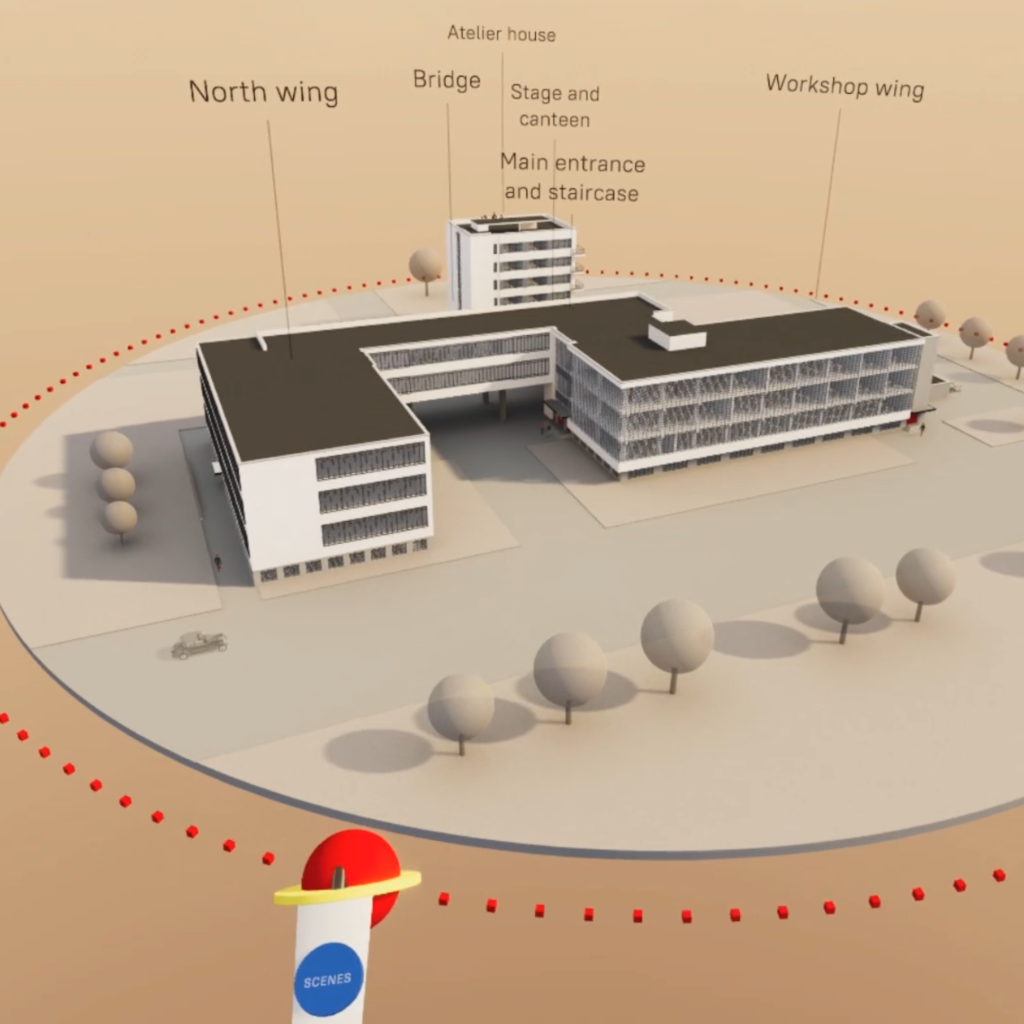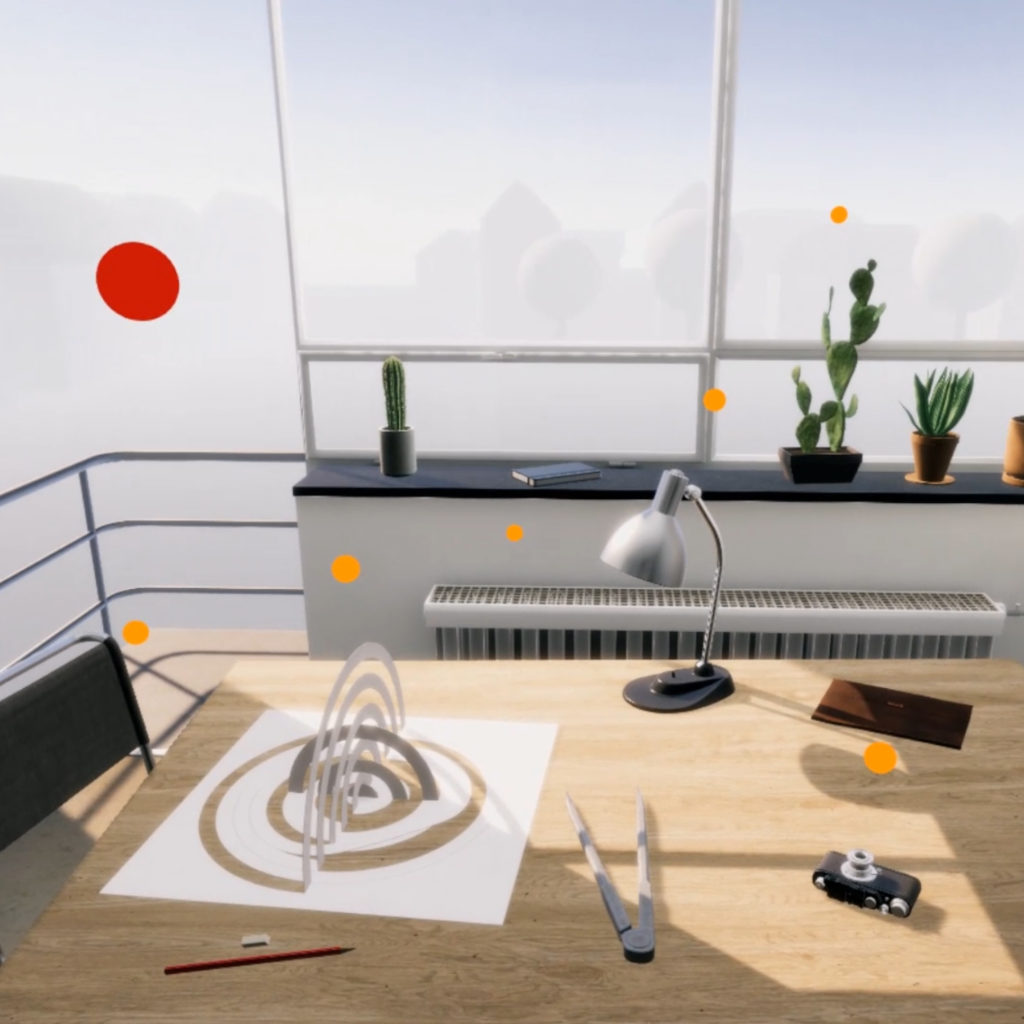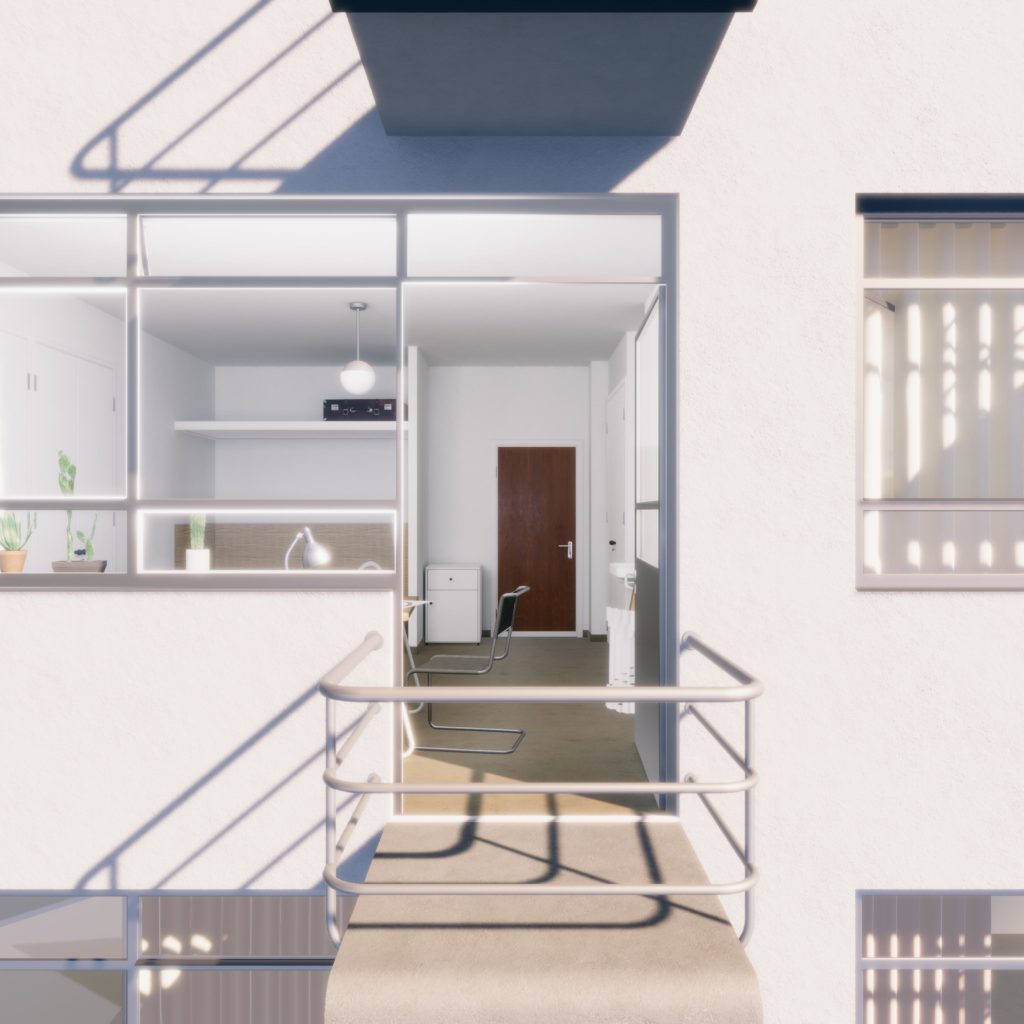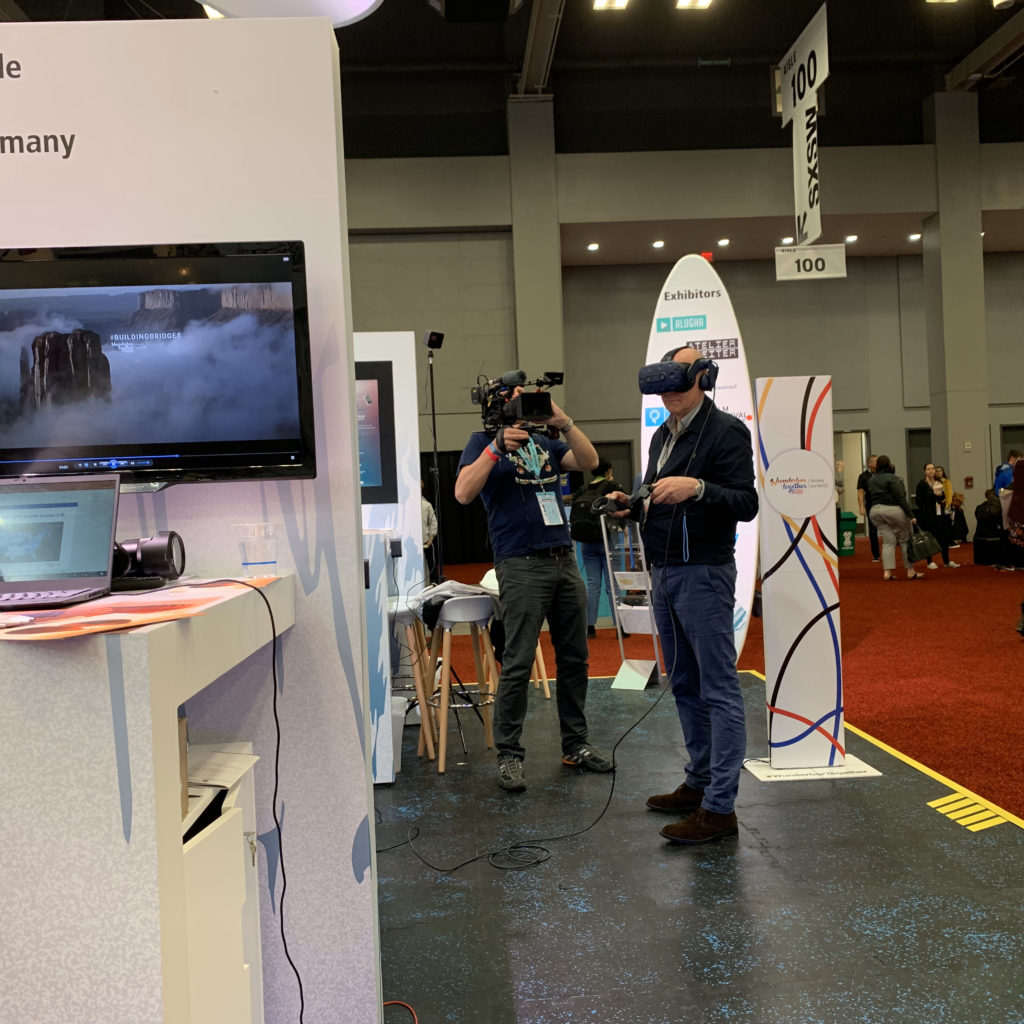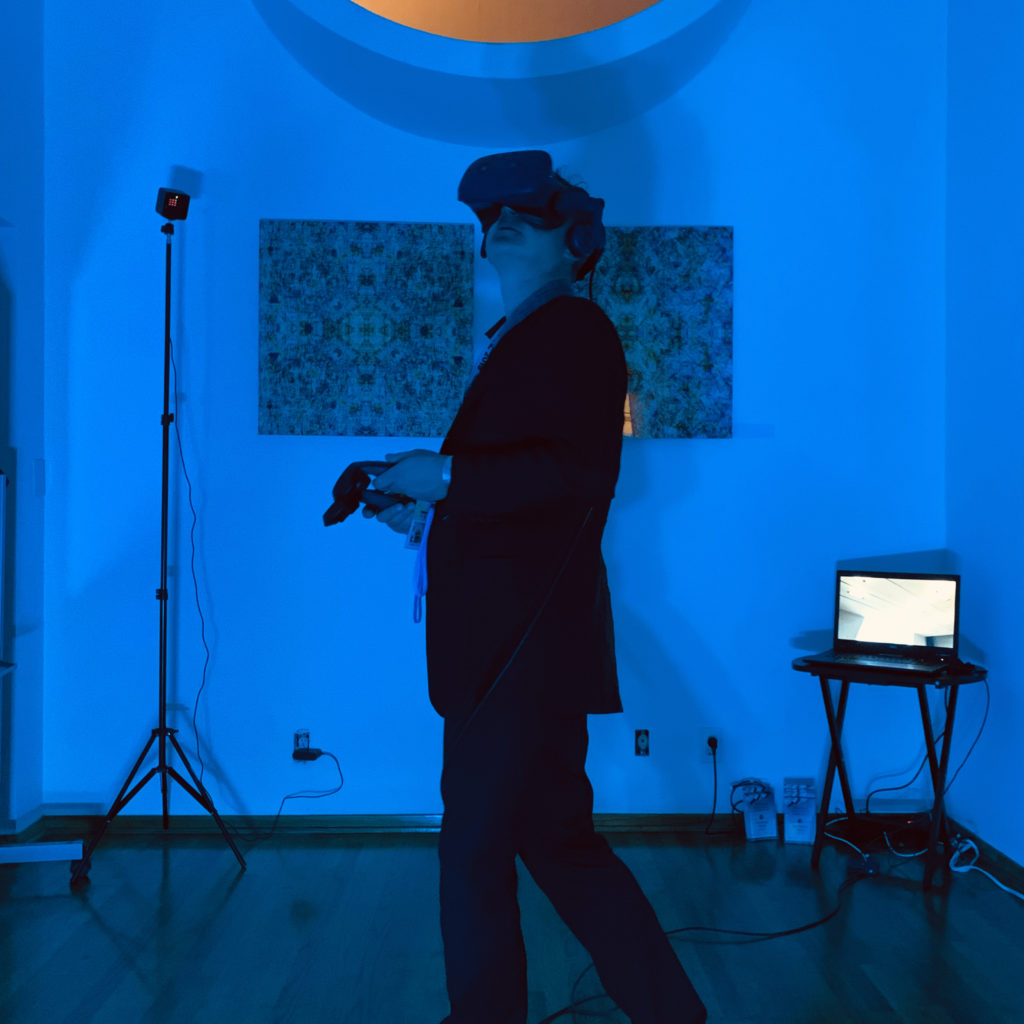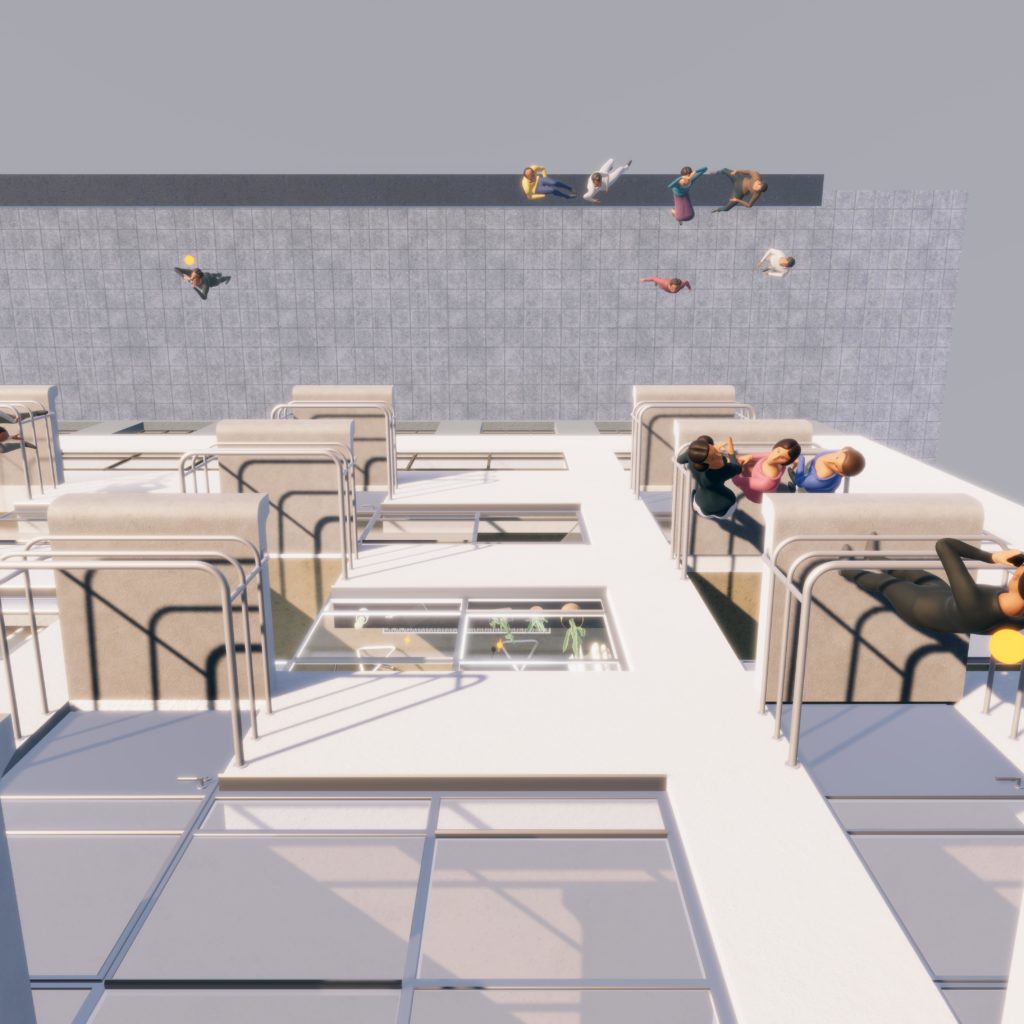About
On the occasion of the 100th anniversary of the Bauhaus, the Cologne Game Lab has developed a VR application on behalf of the Goethe-Institut Boston, which enables a virtual tour through the Bauhaus building in Dessau.
The “Virtual Bauhaus” exhibition is touring ten Goethe Institutes as well as museums and universities in North America, is available for free download and was presented on June 28th 2019 at the Night of Technology at the TH Köln.
Visitors can explore the original student residences in the virtual Bauhaus, engage in an experimental performance in the stage workshop, construct a material study or climb the building’s iconic staircase. The tour takes about 20 minutes with voice over, but can be extended according to personal taste. The aim of the exhibition is not only to familiarise visitors worldwide with the Bauhaus through an immersive environment, but also to convey through a contemporary medium the lasting relevance of one of Germany’s most important cultural legacies.
“The Virtual Bauhaus project is the result of several years of successful cooperation between the Goethe-Institut and Cologne Game Lab. In the spirit of the Bauhaus, it uses contemporary technology to reach as many people as possible. In this way, interested people all over the world can vividly experience the world of the Bauhaus with the help of innovative VR technology in the anniversary year of the Bauhaus. Virtual Bauhaus is being used from Boston to Seattle as part of the Germany Year in the USA and is a much-admired component of the Bauhaus anniversary celebrations,” says Christoph Mücher, co-initiator of the Virtual Bauhaus project and project manager of the Germany Year in the USA.
The development took around two years. “The particular challenge in designing the VR exhibition was to address a very broad target group and to offer a well-functioning user experience. In addition, the exhibition should be set up at many locations worldwide at the same time, without the need for a technical expert as supervisor. This process also had to be very carefully planned and already taken into account during the development,” says Ilja Burzev, who developed and supervised the app with five other CGL employees: Eugene Krivoruchko, Volker Zerbe, Sascha Haus, Mitesh Amin and Sebastian Felzmann. They were supported in the selection of topics and the linguistic presentation by the building experts Jordan Troeller from the Free University of Berlin and Robert K. Huber from zukunftsgeraeusche GbR.
Project manager and co-director of the CGL is Professor Björn Bartholdy: “The use of immersive technologies such as virtual or augmented reality opens up groundbreaking new possibilities in the context of exhibition design and museum concepts. Here, in contrast to an analog exhibition, interaction with the exhibits is virtually a ‘must’. Visitors completely redesign each visit through their interaction with the virtual space. In the border area between digital games and the development of virtual worlds of experience, a new and exciting field is emerging for the researchers and designers at the Cologne Game Lab,” says Bartholdy.


